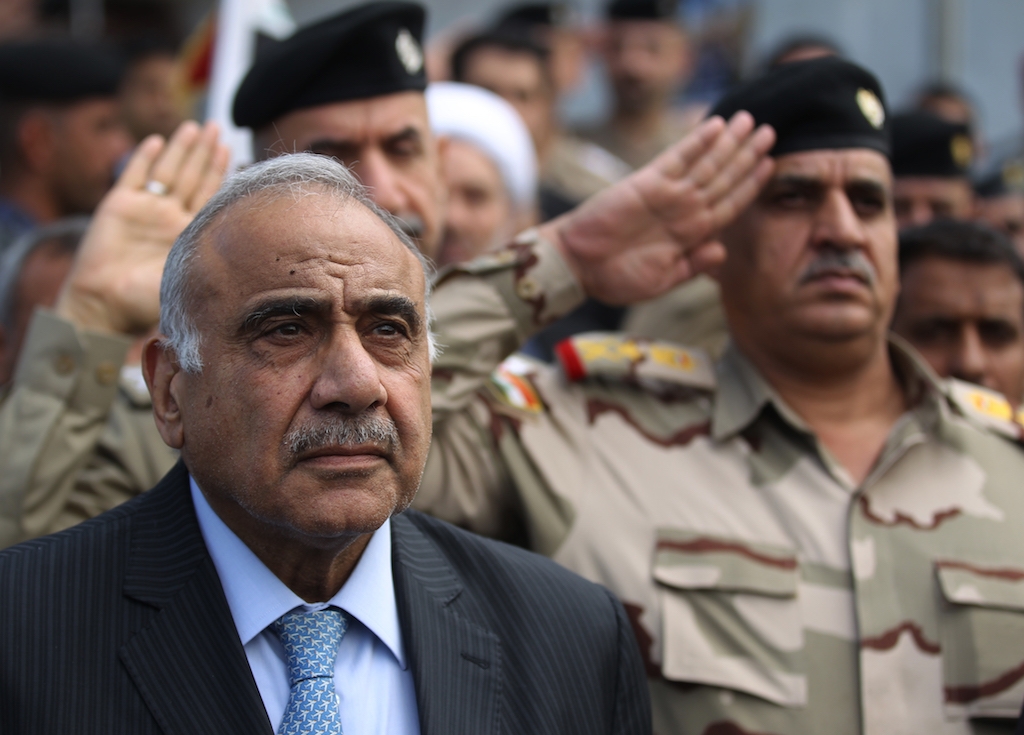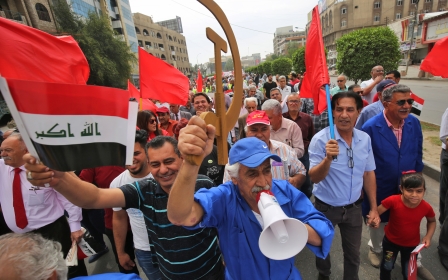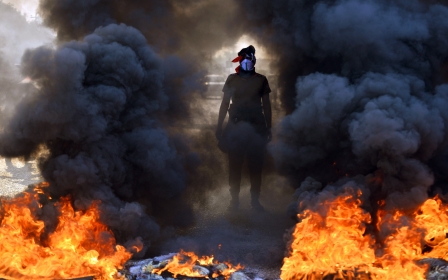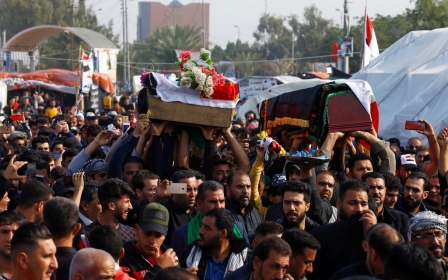Parliament accepts resignation of Iraqi prime minister

Iraq's parliament has approved the resignation of Prime Minister Adel Abdul Mahdi, after just over a year in the role.
The move on Sunday comes after two months of protests in Iraq which have seen more than 420 people killed by security forces.
The premier said on Friday he would submit his resignation to parliament after Ali Sistani, the country's top Shia cleric, intervened calling for the government's resignation.
Mohamed al-Halbousi, the speaker of parliament, said on Sunday he would now ask President Barham Salih to name a new prime minister.
Abdul Mahdi was chosen as a unity figure in October 2018, after the previous prime minister Haider al-Abadi said he would not be seeking re-nomination.
New MEE newsletter: Jerusalem Dispatch
Sign up to get the latest insights and analysis on Israel-Palestine, alongside Turkey Unpacked and other MEE newsletters
Abadi's decision not to seek the role again was also due to his handling of anti-corruption protests that broke out in southern Iraq in 2018.
The Iraqi parliament will now have to decide on Abdul Mahdi's replacement.
Influential Shia cleric Muqtada al-Sadr, who leads the largest bloc in the parliament, warned that established political parties should have no say in deciding the make-up of the new government.
“I will not let the corrupted to enter the government again in new clothes and in a new form and we will not let anyone or any party influence the new government,” Sadr said in a statement on Sunday.
Successive governments have failed to deal with the systemic problems that have afflicted Iraq since the 2003 US-led invasion toppled former president Saddam Hussein.
Corruption, unemployment, lack of services and security have been among the issues that have seen hundreds of thousands of Iraqis taking to the streets.
Activists have been calling for a root and branch change of Iraq's political system, including converting to a presidential system.
Anger has also mounted over the increasing death toll in Iraq, with protesters calling for those involved to be held to account.
On Sunday, an Iraqi court sentenced a police officer to death after he was convicted of killing protesters, the first such sentence since the beginning of October.
Judicial sources told AFP that the criminal court in Kut sentenced the police major to be hanged and jailed a police lieutenant colonel for seven years for their roles in the deaths of seven protesters in the southern city on 2 November.
Middle East Eye delivers independent and unrivalled coverage and analysis of the Middle East, North Africa and beyond. To learn more about republishing this content and the associated fees, please fill out this form. More about MEE can be found here.




